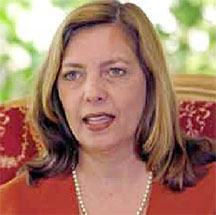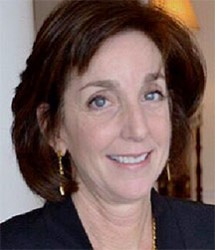HAVANA (Reuters) – Cuba and the United States renewed talks on restoring diplomatic relations yesterday, this time amid secrecy and with the longtime adversaries differing sharply over Venezuela, Cuba’s closest ally.

Assistant US Secretary of State Roberta Jacobson met in Havana with Josefina Vidal, the Cuban foreign ministry’s chief of US affairs, for the first day of open-ended talks.
Jacobson and Vidal led their respective delegations with intense media coverage in Havana in January and in Washington in February, but reporters were excluded from this session.
A US State Department spokeswoman attributed the media blackout to a desire keep the talks “lower key” and said it had no relation to sensitivities over Venezuela or other policy issues.
“Their focus is on rolling up their sleeves, and having tough discussions, and getting the work done,” State Department spokeswoman Jen Psaki told reporters in Washington.
Before agreeing to restore ties, Cuba wants to be removed from the State Department’s list of state sponsors of terrorism and also to find a bank willing to handle transactions for its diplomatic post in Washington.
For its part, the United States wants to increase staff at its mission in Havana and have unrestricted travel for its diplomats on the island.

During the first two rounds, the two Cold War rivals reported progress toward restoring ties that had been severed in 1961 and opening embassies in each other’s countries.
Then on March 9 the United States declared Venezuela a security threat and ordered sanctions against seven officials from the oil-rich country, drawing rebukes from left-leaning governments in Latin America. Venezuela has replaced the Soviet Union as Cuba’s main benefactor.
US officials have said the Venezuela issue should not affect the Cuba talks, but Cuban Foreign Minister Bruno Rodriguez said Washington “has provoked serious damage to the environment in the hemisphere on the eve of the Summit of the Americas.”
“I hope that the US government understands that it can’t handle Cuba with a carrot and Venezuela with a garrote,” Rodriguez said on Saturday while visiting Venezuela.
US President Barack Obama told Reuters on March 2 he hoped the United States would open an embassy in Cuba before that Western Hemisphere summit in Panama set for April 10-11, when he and Cuban President Raul Castro could have their first face-to-face meeting since shaking hands at Nelson Mandela’s funeral in December 2013.
